Meet our speakers and chairs for the EDOR symposium From Evidence to Everyday: translating nutrition research evidence for a healthy Aotearoa, 20 September 2019, Wellington, New Zealand.
International speakers
Associate Professor Nia Aitaoto, University of Utah
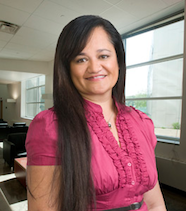 Topic: Weaving evidence-based nutrition interventions to complement Pacific Islanders' everyday life rhythm
Topic: Weaving evidence-based nutrition interventions to complement Pacific Islanders' everyday life rhythmNia Aitaoto is an Associate Professor at the University of Utah's College of Health and an adjunct Associate Professor at New York University College, University of Hawaii, and the University of Iowa. Dr Aitaoto is a principal investigator of several research studies in Hawaii and the Pacific and has over 20 years of experience in the health and education field focusing on cancer, diabetes, cultural competency, physical activity, nutrition, medication adherence and tobacco related initiatives. Dr Aitaoto also specializes in providing technical assistance, data assessment and evaluation support to ministries of health, community health centers and non-profit organizations in the Pacific.
Ms Sarah Boseley, The Guardian
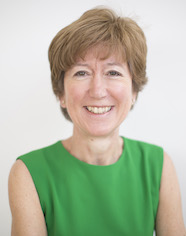 Topic: The role of media in translating nutrition evidence
Topic: The role of media in translating nutrition evidenceSarah Boseley has been health editor of the Guardian since 1998, writing news stories, features and analysis on issues around health and medicine in the UK and around the world from nutrition to access to medicines to Ebola outbreaks. She has won a number of awards for her work, including the One World Media Award (twice), the European section of the Lorenzo Natali prize, awarded by the European Commission and a BMJ Group award. In 2016, she was named health and science journalist of the year at the UK's Press Awards. She is the author of a book on the obesity crisis, called “The Shape We're In: how junk food and diets are shortening our lives”, an occasional contributor to The Lancet medical journal and a regular guest on the BBC World radio show Health Check.
Professor Merlin Thomas, Monash University
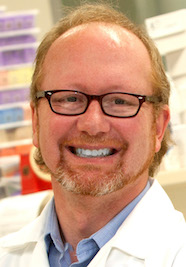 Topic: Metabolic karma - understanding the lasting legacy of our diet
Topic: Metabolic karma - understanding the lasting legacy of our dietMerlin Thomas is a clinician scientist and program leader in the Department of Diabetes at Monash University. He trained in medicine at the University of Otago, and qualified with distinction in 1992. Professor Thomas is widely recognized as a researcher, educator and medical storyteller with over 300 publications to his name, as well as best selling books, "The Longevity List" and "Fast Living Slow Ageing". His research program is focused on understanding the mechanisms of diabetic complications and developing new opportunities for their prevention and treatment.
Professor Nick Wareham, University of Cambridge
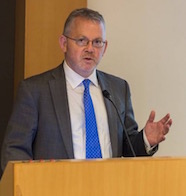 Topic: Creating the evidence base for nutritional public health interventions: time for a new paradigm
Topic: Creating the evidence base for nutritional public health interventions: time for a new paradigmNick Wareham is Director of the MRC Epidemiology Unit and co-Director of the Institute of Metabolic Science at the University of Cambridge. He undertakes research into the aetiological determinants of diabetes, obesity and related metabolic disorders, and the translation of that epidemiological understanding into preventive action. Professor Wareham is also Director of the UKCRC Centre of Public Health Research Excellence in Diet and Activity Research (CEDAR) and the lead for the Cambridge BRC theme in Diet, Nutrition and Lifestyle. He is an Honorary Consultant with Addenbrooke's and Public Health England.
New Zealand speakers
Hon Grant Robertson, Minister of Finance
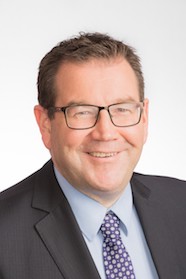 Topic: How do and should governments respond to research evidence?
Topic: How do and should governments respond to research evidence?Grant Robertson studied politics at the University of Otago, graduating with a Bachelor of Arts with Honours in 1995. He was the President of the Otago University Students Association and became Co-President of the New Zealand University Students Association. Grant joined the Ministry of Foreign Affairs and Trade in 1997 where he managed the New Zealand Overseas Aid Programme to Samoa. He was then posted to the United Nations in New York, working on global environment and development issues. On his return to New Zealand, Grant became an advisor to former Prime Minister Helen Clark. He became a Member of Parliament in 2008, and in Opposition held a range of portfolios, including Finance from 2014 to 2017. After the 2017 election, Grant was appointed Minister of Finance.
Ms Niki Bezzant, Food and nutrition writer
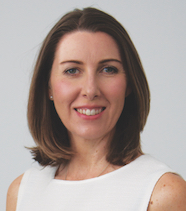 Topic: Truth in an Instagram world: Science, pseudoscience and social
Topic: Truth in an Instagram world: Science, pseudoscience and socialNiki Bezzant is a writer, speaker, editor and commentator, who has been involved in the food media for 20 years. She's the founding editor and now editor-at-large of NZ's highest-selling food magazine, Healthy Food Guide, a columnist for the Herald on Sunday and the Monday Herald Be Well, and a frequent contributor to broadcast media. She is a proud ambassador for the Garden to Table programme which helps kids learn how to grow, cook and share food. She is a member of the Council of Directors for the True Health Initiative, a global coalition of health professionals dedicated to sharing a science-based message of what we know for sure about lifestyle and health; and a board member for the NZ Nutrition Foundation.
Professor Hugh Campbell, University of Otago
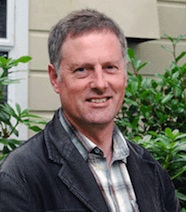 Topic: Crossing disciplinary divides: the challenge of collaboration between nutrition and environmental sustainability
Topic: Crossing disciplinary divides: the challenge of collaboration between nutrition and environmental sustainabilityHugh Campbell is the Chair of Sociology at the University of Otago. His specialist research interests relate to emerging challenges in the relationships between food, agriculture and environment in Aotearoa/New Zealand. From 2000 to 2010 he was the Director of the Centre for the Study of Agriculture, Food and Environment (now the Centre for Sustainability) at the University of Otago and led a series of research programmes into the mainstreaming of sustainability practices by farmers and food export sectors. He is currently completing a book on the political agency of farms during the colonisation of Aotearoa/New Zealand and how this influences our future options for sustainable land-use.
Dr Matire Harwood, University of Auckland
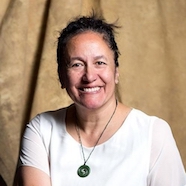 Topic: Supporting communities with nutrition advice
Topic: Supporting communities with nutrition adviceMatire (MBChB, PhD), Ngāpuhi, is a hauora Māori academic at the University of Auckland and a GP at the Papakura Marae Health Clinic. Matire sits on a number of boards and advisory committees including the Waitemata DHB, the New Zealand Expert Advisory Group for Health Research and Performance Based Research Funding assessing panel for Health. In 2017 she was awarded the L'Oréal UNESCO New Zealand 'For Women In Science Fellowship' for her work in indigenous health.
Emeritus Professor Helen Leach, University of Otago
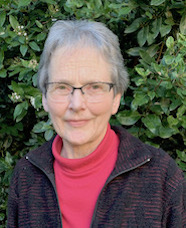 Topic: The phenomena of supersizing and enrichment as revealed in recipes
Topic: The phenomena of supersizing and enrichment as revealed in recipesEmeritus Professor Helen Leach enrolled in Anthropology papers at the University of Otago in 1963, the start of a long career researching and teaching the evolution of human food production and how raw ingredients were transformed into meals. She has researched the cooking of New Zealanders living in the past two centuries, building up a research library of over 2000 New Zealand-published cookbooks. From 2005 to 2008, she led a research team investigating 'The Development of New Zealand's Culinary Traditions', supported by the Marsden Fund of the Royal Society of New Zealand. Following the publication of From Kai to Kiwi Kitchen (2010), as well as books on the evolution of the pavlova (2008) and the Christmas cake (2011), she worked on the history of the New Zealand kitchen in the 20th century (2014).
Professor Jim Mann, University of Otago
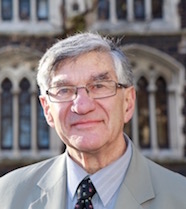 Topic: Clarifying the minefield of ever-changing “nutrition advice”
Topic: Clarifying the minefield of ever-changing “nutrition advice”Jim Mann has been Professor in Medicine and Human Nutrition at the University of Otago and Consultant Physician (Endocrinology) in Dunedin Hospital for the past 30 years. He is Director of the World Health Organisation (WHO) Collaborating Centre for Human Nutrition, the 'Healthier Lives' National Science Challenge and the New Zealand-China Non Communicable Diseases Research Collaboration Centre and; co-Director of the Edgar Diabetes and Obesity Research Centre (EDOR). His research has principally been related to epidemiological and nutritional aspects of diabetes and cardiovascular disease, with a special interest in diabetes prevention.
Chairs and panel speakers
Ms Karen Brown, Radio New Zealand
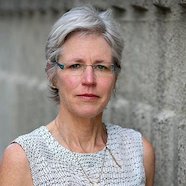 Chair: Translating nutrition evidence: from evidence to everyday life
Chair: Translating nutrition evidence: from evidence to everyday lifeKaren has been the health correspondent for RNZ for 14 years. She's won awards from the Colorectal Surgical Society of Australia and New Zealand for an Insight documentary on a pilot bowel screening programme in Waitemata District Health Board; and from the College of Pathologists for an Insight documentary on the risky and contentious change in provider of lab services in Auckland in 2010. Karen has an MA in journalism from the University of Missouri Columbia, a diploma in Journalism from Canterbury University and a BA from Victoria University in Wellington.
Sir Eion Edgar, EDOR Advisory Board Chair
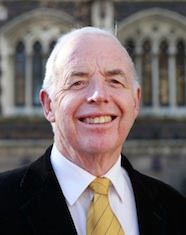 Welcome and opening remarks
Welcome and opening remarksSir Eion, the founding benefactor of EDOR, has a long association with the University of Otago including serving as Chancellor from 1999-2003. Sir Eion brings a wealth of governance experience to the EDOR advisory board, having formerly been Chairman of the New Zealand Stock Exchange and a Director of the Reserve Bank of New Zealand. Sir Eion has served on many other organisations, just some of which include the Foundation for Youth Development (formerly Project K), a trustee of the Halberg Disability Foundation, and as President of the New Zealand Olympic Committee.
Dr Riz Firestone, Massey University
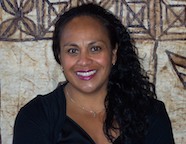 Chair: History of food and disease in the Pacific – the evidence
Chair: History of food and disease in the Pacific – the evidenceRidvan (Riz) Firestone is a senior researcher and Associate Dean Pasifika at the Centre for public Health Research at Massey University. Her research involves investigations on health inequities and disease, specifically long-term conditions, among young Pacific people in NZ. She also has a wider focus on Pacific health development, particularly in relation to developing community-based interventions, where Pacific communities partner with the research team to tailor interventions, ensuring community needs are central to the programme.
Professor Dave Grattan, University of Otago
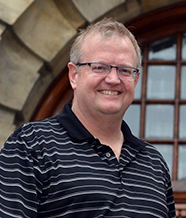 Closing remarks
Closing remarksDave Grattan is Professor and the previous Head of the Department of Anatomy at the University of Otago, and a member of EDOR. He is a Management Principal Investigator for the Maurice Wilkins Centre, a National Centre for Research Excellence. His research group is housed in the Centre for Neuroendocrinology, and his research interests include the control of appetite and body weight during pregnancy and obesity.
Dr Sally Mackay, University of Auckland
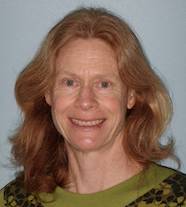 Topic: Is healthy food really more expensive?
Topic: Is healthy food really more expensive?Sally Mackay is a Registered Nutritionist who recently completed a PhD at the University of Auckland on the INFORMAS (International Network for Food and Obesity/non-communicable diseases, Research, Monitoring and Action Support) methodology of monitoring food prices over time. She is working as a research fellow monitoring the healthiness of the packaged food supply and is interested in reformulation of packaged foods, food affordability, monitoring food companies commitments to health and monitoring the wider food environment. She worked with the New Zealand INFORMAS team on assessing Government's level of implementation of policies for improving food environments, and co-authored a report of a comprehensive assessment of food environments. Her previous work as a public health nutritionist for a wide range of organisations included working for the Ministry of Health for the 2008/09 Adult Nutrition Survey.
Ms Deborah Manning, KiwiHarvest
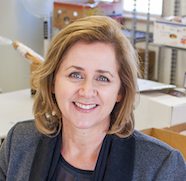 Topic: The societal value created in redistributing unsold food to people in need
Topic: The societal value created in redistributing unsold food to people in needDeborah Manning is a lawyer, social entrepreneur and the Founder of KiwiHarvest, a New Zealand national food rescue organisation. Deborah brought the food rescue concept to life in Dunedin in 2012 and then expanded into Auckland, North Shore, Hawke's Bay and Queenstown. The idea grew out of Deborah's concern about the amount of food waste that was being discarded while, at the same time, disadvantaged and vulnerable members in the community were going hungry. KiwiHarvest's mission is simple – to source excess nutritious food and distribute it to community organisations that feed those in need, and to protect the environment by stopping surplus food from being discarded and the valuable resources used to create it from being wasted.
Professor Rachael Taylor, EDOR Director
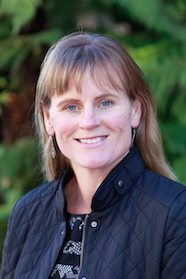 Welcome and opening remarks
Welcome and opening remarksRachael Taylor is Director of the Edgar Diabetes and Obesity Research Centre. Rachael's research aims to determine how best to help people effectively manage their weight and improve their health, in a world that makes this increasingly difficult to do so. She leads or co-leads a number of large intervention projects testing different approaches to effective obesity prevention in children and adolescents. One of her main areas of interest is how sleep may contribute to effective weight management during growth.
Dr Lisa Te Morenga, Victoria University of Wellington
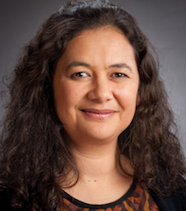 Chair: Translating nutrition evidence: What does the science tell us?
Chair: Translating nutrition evidence: What does the science tell us?Lisa Te Morenga (Ngapuhi, Ngāti Whātua, Te Rarawa) is a Senior Lecturer in Māori Health and Nutrition in the School of Health at Victoria University of Wellington. She specialises in the role of diet in the treatment and prevention of obesity, diabetes and cardiovascular disease, with a particular interest in nutrition and hauora (Māori health). She completed a doctorate in human nutrition at the University of Otago in 2010. Dr Te Morenga combines her research with community and international outreach, and has worked with organisations including the World Health Organisation, Toi Tangata, Ngāti Porou Hauora, the National Health Foundation, and the Royal Society Te Apārangi.
Ms Kim Hill, Radio New Zealand
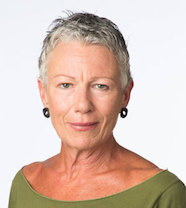 Chair: The cost of food – a panel discussion
Chair: The cost of food – a panel discussionKim Hill is unquestionably one of New Zealand's finest current affairs interviewers, and is the host of RNZ National's Saturday morning programme.
S
